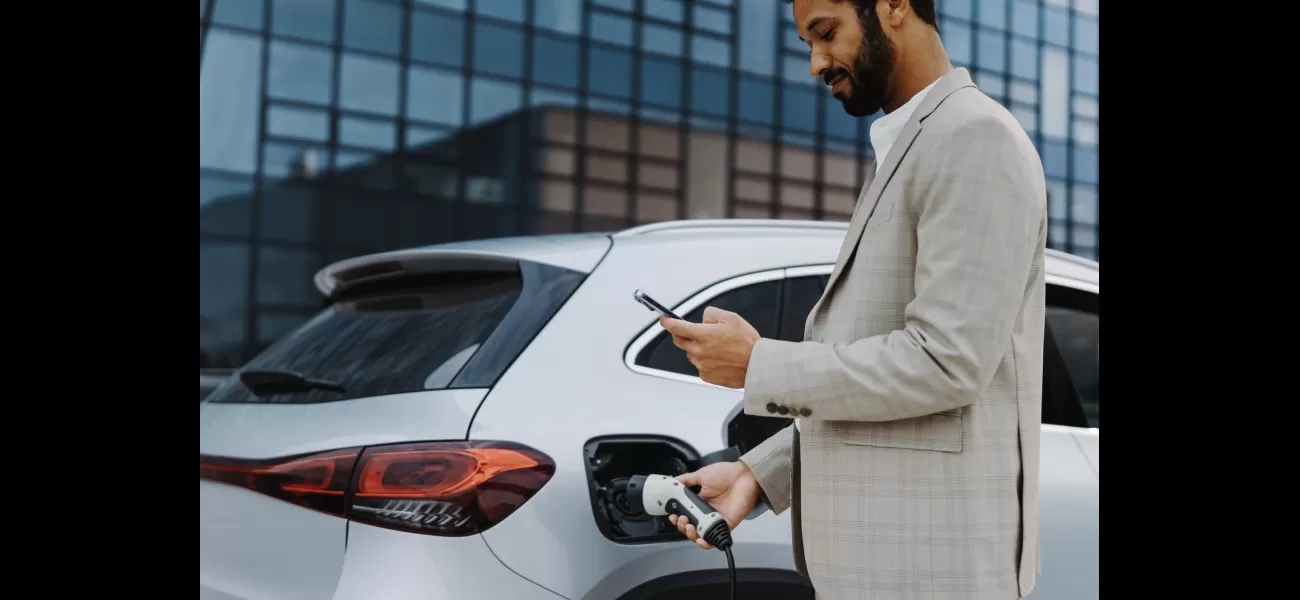House of Lords suggests reducing tax on electric car charging for a more equitable society.
Not everyone is charged the same.
February 6th 2024.

The House of Lords has recently put forward a proposal to the government regarding the pricing of electric vehicle (EV) charging. They suggest that the current VAT rate of 20% on public charging should be reduced to 5%, making it more affordable for EV owners to charge their cars compared to filling up at traditional petrol stations.
While EV owners already benefit from the lower VAT rate for charging at home, those without access to off-street parking or a private charging point face higher costs when relying on public charging points. The Environment and Climate Change Committee of the House of Lords released a new report today, calling on the government to take action on this issue.
The chair of the committee, Baroness Parminter, expressed concerns over the impact of high charging costs on individuals considering the long-term expenses of owning an EV. She also highlighted the issue of fairness, as a large portion of the population (40%) does not have access to home charging.
The report, titled 'EV strategy: rapid recharge needed', did not provide specific suggestions on how the VAT cut could be financed. However, it did mention that other countries have successfully implemented a "bonus-malus" system, where new petrol and diesel cars are taxed, to fund such initiatives.
The committee also pointed out that not all EV drivers have access to cheaper at-home charging options. However, they did not make any recommendations on how to address this issue, leaving it to the government to assess potential solutions.
From April 1, 2025, EV drivers will be required to pay road tax, whereas they were previously exempt. The report also criticized the government for not taking enough action against the spread of misinformation about the range and safety of EVs.
Baroness Parminter noted that there have been recent attempts to spread fear among the public regarding the safety of EVs, despite evidence from the Association of British Insurers showing no significant difference in fire risk between EVs and traditional cars. She also expressed concerns about the constant focus on charge anxiety, which could be distracting from the numerous benefits of EVs, such as lower costs, reduced air pollution, and carbon emissions.
The committee highlighted the need for more EV charging points, particularly on motorways, where the government has failed to meet its targets. They stressed that while there may be truth in the lack of charging infrastructure, it should not overshadow the positives of EVs, which are essential in achieving net-zero emissions.
A spokesperson for the Department for Transport responded, stating that the government has invested over £2 billion in supporting the switch to electric vehicles. They also mentioned an increase in public charging points and the introduction of grants to install charging points in state schools and nurseries.
In other news related to EVs, there has been a rise in their popularity, with over a million now on UK roads. However, there are concerns that Brexit could lead to an increase in their prices by as much as £3,400 from next year. This may make second-hand EVs a more viable option for those looking to purchase one, especially with the introduction of Ultra Low Emission Zones (ULEZ).
While EV owners already benefit from the lower VAT rate for charging at home, those without access to off-street parking or a private charging point face higher costs when relying on public charging points. The Environment and Climate Change Committee of the House of Lords released a new report today, calling on the government to take action on this issue.
The chair of the committee, Baroness Parminter, expressed concerns over the impact of high charging costs on individuals considering the long-term expenses of owning an EV. She also highlighted the issue of fairness, as a large portion of the population (40%) does not have access to home charging.
The report, titled 'EV strategy: rapid recharge needed', did not provide specific suggestions on how the VAT cut could be financed. However, it did mention that other countries have successfully implemented a "bonus-malus" system, where new petrol and diesel cars are taxed, to fund such initiatives.
The committee also pointed out that not all EV drivers have access to cheaper at-home charging options. However, they did not make any recommendations on how to address this issue, leaving it to the government to assess potential solutions.
From April 1, 2025, EV drivers will be required to pay road tax, whereas they were previously exempt. The report also criticized the government for not taking enough action against the spread of misinformation about the range and safety of EVs.
Baroness Parminter noted that there have been recent attempts to spread fear among the public regarding the safety of EVs, despite evidence from the Association of British Insurers showing no significant difference in fire risk between EVs and traditional cars. She also expressed concerns about the constant focus on charge anxiety, which could be distracting from the numerous benefits of EVs, such as lower costs, reduced air pollution, and carbon emissions.
The committee highlighted the need for more EV charging points, particularly on motorways, where the government has failed to meet its targets. They stressed that while there may be truth in the lack of charging infrastructure, it should not overshadow the positives of EVs, which are essential in achieving net-zero emissions.
A spokesperson for the Department for Transport responded, stating that the government has invested over £2 billion in supporting the switch to electric vehicles. They also mentioned an increase in public charging points and the introduction of grants to install charging points in state schools and nurseries.
In other news related to EVs, there has been a rise in their popularity, with over a million now on UK roads. However, there are concerns that Brexit could lead to an increase in their prices by as much as £3,400 from next year. This may make second-hand EVs a more viable option for those looking to purchase one, especially with the introduction of Ultra Low Emission Zones (ULEZ).
[This article has been trending online recently and has been generated with AI. Your feed is customized.]
[Generative AI is experimental.]
0
0
Submit Comment





